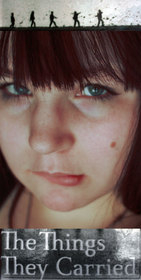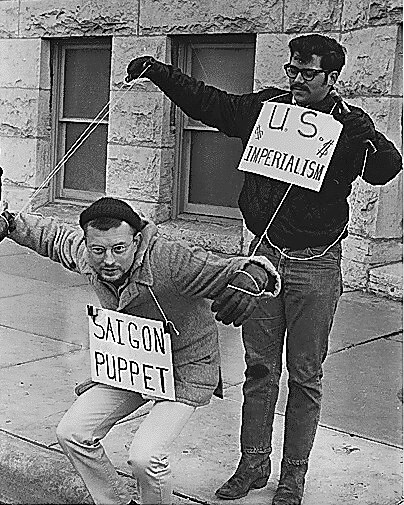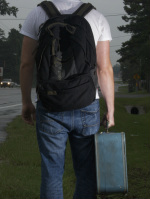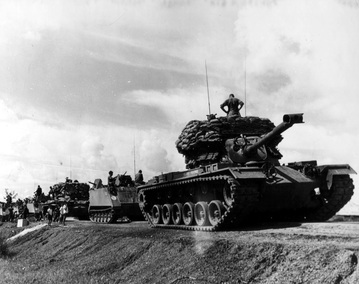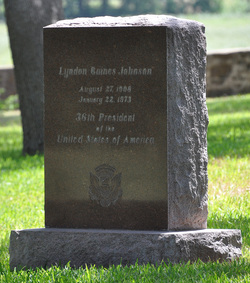|
Discovery Videos
Login: kerdman Password: English210 |
Resource for Entire Unit |
Module #15
Pre-Reading Activities
Module #16
Pre-Reading Activities
|
Tim O'Brien Biography
Source litlovers.com via kpl.gov Tim O'Brien has said it was cowardice--not courage--that led him, in the late 1960s, to defer his admittance into Harvard in favor of combat in Vietnam. The alternatives of a flight to Canada or a moral stand in a U.S. jail were too unpopular. He has since explored the definitions of courage--moral, physical, political,--in his fiction, a body of work that ahs, at least until recently, dealt almost exclusively with America's most unpopular war and its domestic consequences. His first book, If I Die in a Combat Zone, Box Me Up and Ship Me Home, looked at the war through a collection of war vignettes that he had written for newspapers in his home state of Minnesota, and his second book was a novel, Northern Lights, that he later decried as overly long and Hemingwayesque--almost a parody of the writer's war stories. Born in Austin, Minn., to an insurance salesman and school teacher, O'Brien grew up as a voracious reader but didn't find the courage to write until his experiences in Vietnam. After the war, he studied at the Harvard University's School of Government and was a staff reporter at the Washington Post in the early 1970s. He writes from early in the morning until the evening and has a reputation for discarding long passages of writing because he finds the effort substandard. He also can do extensive revisions of his books between editions. |
|
Before diving into The Things They Carried, view a video and read some information about the Vietnam War. This information will help you better understand the circumstances in which O'Brien was embroiled in the 1960s.
|
|
Reading Activities
Module #17
Pre-Reading Activities
|
1. Prior to reading, continue to read about the Vietnam War by opening the article "Quange Ngai Province & My Lai Massacre."
2. Afterward, watch the 45-minute CBS News video TET and the Anti-War Movement. On Jan 30 1968, the communist North Vietnam raided military posts, airfields, and attacked major cities in South Vietnam simultaneously. The siege of the U.S. Embassy and the Tet Offensive brought the truth about the Vietnam War home to American television. Please note: this clip contains sensitive material. 3. Following that, watch the 25-minute video Our Men in Vietnam as documentarian Phil Jones traveled to Vietnam and returned with this documentary that explores the United States involvement in the war. Shows soldiers from Minnesota being interviewed about their feelings on the war and their particular jobs during the war. © 1966 United Learning 4. Also, watch the 27-minute video, Return to Vietnam: Healing on the Hill. This documentary chronicles the return of 18 American veterans to Hill 376 in Vietnam 30 years after they were ambushed by the Viet Cong in a deadly conflict. The veterans, along with the families of hill casualties, retrace the climb and eventually reach the top of the hill, where they return to remembrance of the tragedy. Kevin Wallevand introduces his poignant work as a journey of promises, forgiveness, renewal, and healing. The camera records that journey and aftermath which includes a reunion of Vietnam veterans and their past enemies, the Viet Cong. Contains primary source footage. Provided by the Museum of Broadcast Communications. © 1999 United Learning 5. Finally, read information about the Vietnam Veterans' Memorial Wall. This site allows visitors to look up the names that are inscribed on the Vietnam Veterans' Memorial Wall. There is also a page that gives a history of the wall. |
Reading Activities
Module #18
Well, you've made it to the end of the online course. Yea! Only one more module to go. This module takes you through analysis of The Things They Carried by Tim O'Brien, as well as through a personal reflection of your online experience.
You still have videos to watch, links to read, and discussions to post. In addition, you have some post-reading questions to answer about the novel, as well as a final online unit test.
But before you take that last vocabulary test and your final exam, you will write one last reflective essay--this time about your online learning experience.
I hope you've enjoyed your unique English class experience! See you soon. Mrs. Erdman
You still have videos to watch, links to read, and discussions to post. In addition, you have some post-reading questions to answer about the novel, as well as a final online unit test.
But before you take that last vocabulary test and your final exam, you will write one last reflective essay--this time about your online learning experience.
I hope you've enjoyed your unique English class experience! See you soon. Mrs. Erdman
Post-Reading Activities
REFLECTIVE ESSAY

A Google document has been shared with you entitled Reflective Essay. Please use this document to write your final essay for this course.
Prompt: Taking an online course presents some unique experiences and challenges. Reflect upon your semester in an online English class. What were some experiences in which you found exciting? useful? challenging? unnecessary?
Assignment: Write an essay (don’t ask me how long; make sure you are clear and detailed in your explanation) in which you consider your interaction in this course. Your essay should have a clear beginning, middle, and end and should be organized throughout the essay. It should also use standard English grammar conventions and vivid vocabulary.
Prompt: Taking an online course presents some unique experiences and challenges. Reflect upon your semester in an online English class. What were some experiences in which you found exciting? useful? challenging? unnecessary?
Assignment: Write an essay (don’t ask me how long; make sure you are clear and detailed in your explanation) in which you consider your interaction in this course. Your essay should have a clear beginning, middle, and end and should be organized throughout the essay. It should also use standard English grammar conventions and vivid vocabulary.
